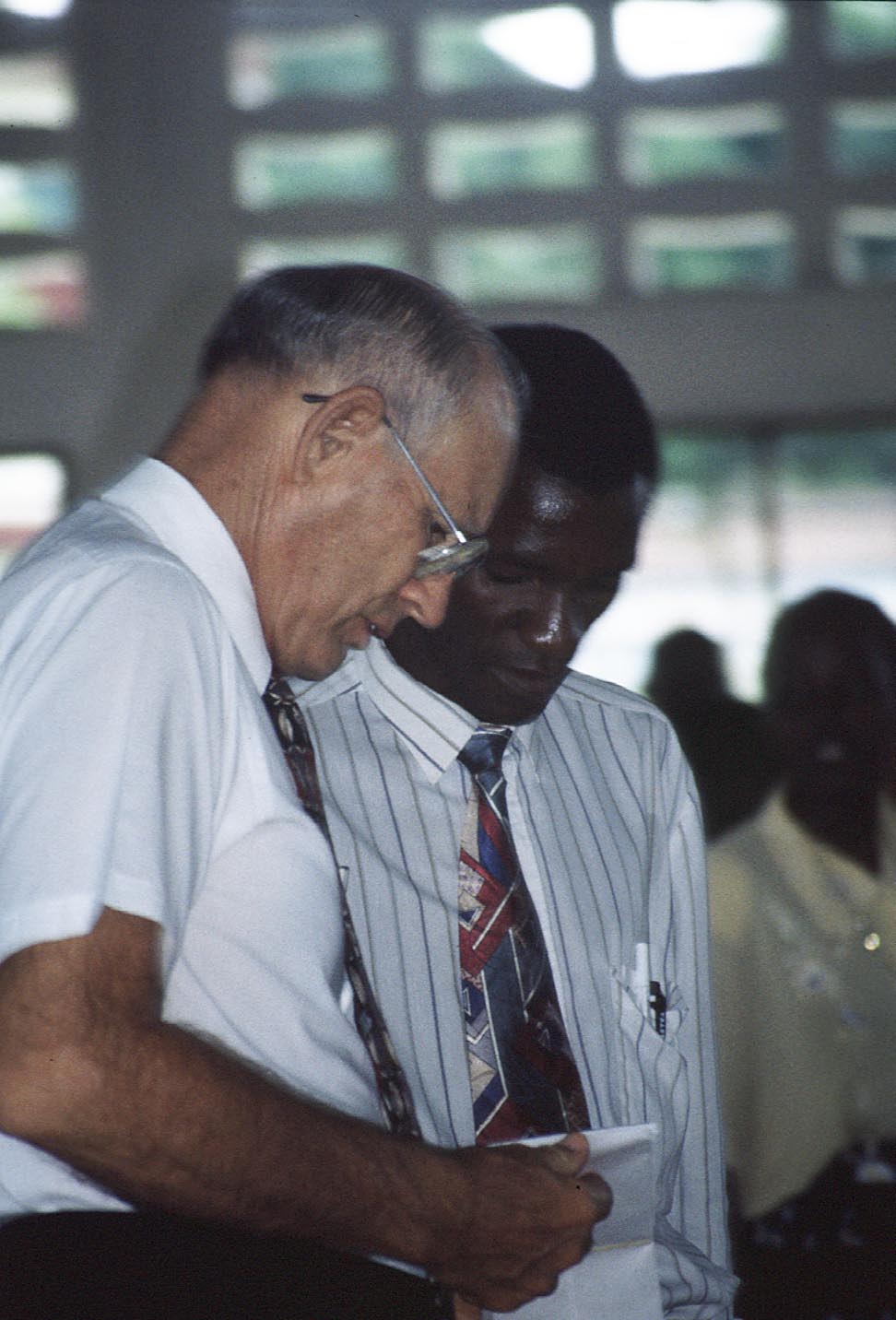
MALINDI, Kenya (BP)–The 14-year-old boy spotted a group of strangers walking down the country path. His curiosity was piqued when they stopped to talk to a man. He hid behind a mud-packed home and listened as the visitors spoke of God’s love.
As Kenyan pastor Samuel Katana explained that sin separated man from God, the teenager hung his head in shame. When Jesus’ sacrifice on the cross entered the picture, he stepped from his hiding place and quietly took a seat next to the pastor.
“I am a sinner. I need to be forgiven,” he said as tears streamed down his face. “I believe. You must tell my mother.”
The teenager led Katana by the hand to his home. In his excitement, he blurted out the “good news” before the pastor even had a chance to speak. His mother accepted Christ on the spot.
As Katana was leaving, the teenager’s father came running after him, yelling, “I am ready.” The mother had been so excited that she had gone to tell him about Christ’s love, and he ran from the fields to find Katana so he, too, could pray to receive Christ.
This family became the first members of Bethany Baptist Church, which meets under a mango tree outside Malindi, Kenya. Katana may be only 33, but he has helped start five churches among his own people group, the Giriama.
“It feels good to work doing what God commanded Christians to do,” the pastor said. “The Giriama are open and receptive to the gospel right now. Our goal is to start enough churches so that everyone is within walking distance of a church.”
While that may sound like a hefty goal, it has, in fact, become reality. When International Mission Board missionaries Clay and Pat Coursey began working in the Malindi area 25 years ago, they envisioned a time when the Giriama would be self-starters — planting the seeds of Christ among their own people.
That time has come.
Pastors like Katana and local Christians have caught the vision and taken over the work of starting new churches and discipling believers. With their work complete, Clay and Pat will retire in August with no IMB missionaries replacing them.
The idea is to use local churches and their members to plant new churches. The main goal is to disciple local believers to take over the ministry of the missionaries.
Thirty years ago, 87 percent of the Giriama practiced traditional African religions such as ancestor worship and black magic. Most had never heard of Jesus Christ, let alone seen a Bible.
Because of the small response to the gospel among the Giriama, fellow missionaries thought Clay was crazy when, in 1974, he said God gave him a vision for starting 100 churches among the Giriama in the next three years. At the time, there were only six Baptist churches and very few Christians.
The couple worked hard after the revelation, visiting homes and sharing Christ with more zeal than ever. Ten more churches were started out of their effort, but few lasted.
“That’s when Pat and I discovered we were not good church planters,” Coursey said. “Every church we started collapsed. Every church that one of the Giriama had a direct hand in starting seemed to flourish.”
A new strategy developed. Four graduates from the Baptist Seminary of East Africa in Arusha, Tanzania, teamed up with Giriama elders to evangelize area villages.
The teams traveled through the countryside giving testimonies and teaching the Bible. More than 180 churches were started in the first year. Ninety of those churches survived and still thrive today.
By 1977, the 100 churches the Lord had promised had been planted and were in the beginning stages of laying a firm foundation. The Courseys were convinced that each new church start needed to begin with local leadership instead of dependence on them.
“Our churches grew up with an indigenous mentality of taking care of themselves,” Coursey said. “From the very beginning they took the lead role, and we were there to educate, encourage and support.”
A series of church-planting seminars in 1984 caught the interest of 28 congregations. That year, more than 20 new churches were started by the seminar participants. Now many churches consider themselves grandparents and even great-grandparents of other churches. This past summer alone, more than 120 churches were started by local congregations along the east coast of Kenya.
Through the years, the Courseys have seen a lot of changes — a massive evangelization movement in the 1970s and a church-planting movement in the 1980s. The highlight for the couple, however, came recently when the churches appointed a committee to study possibilities of evangelizing other areas and even other countries.
“In that meeting, I saw them turn from looking only at themselves and their people to looking at the world,” Coursey said. “That’s what it is all about — reaching out to those who do not know Christ.
“They have the ability to reach out. Now it is time for Pat and me to sit back and watch.”
















